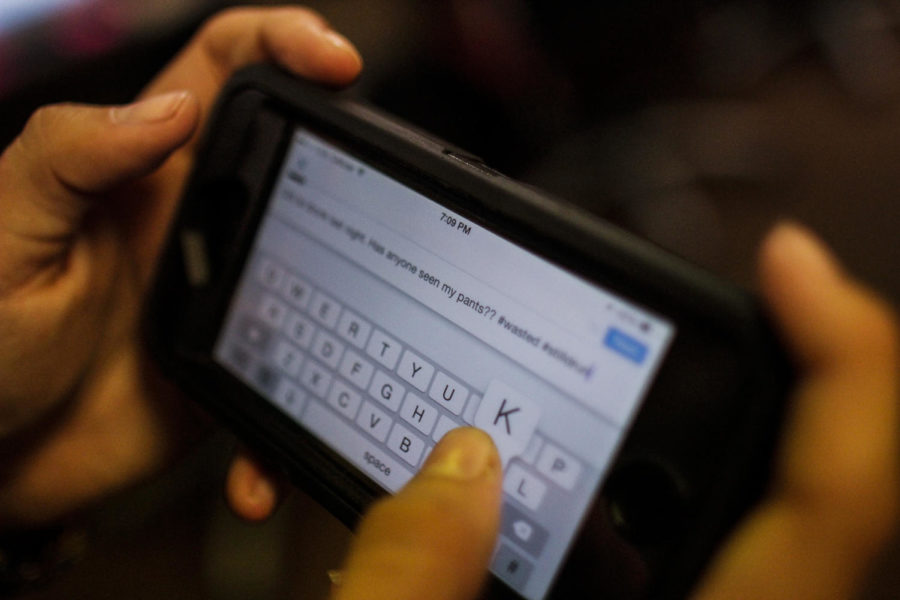Editorial: Threats to Shelby Mueller don’t help conversation
Photo Illustration: Kelby Wingert/Iowa State Daily
Clean up your social media
September 15, 2015
#shelbymueller
The trending social media label has garnered national attention after the Iowa vs. Iowa State football tailgate Saturday, when Shelby Mueller, 20, ripped a Donald Trump protester’s sign that said, “Our lives begin to end the day we become silent about the things that matter.”
Mueller, who does not attend Iowa State or the University of Iowa, was caught on video, and social media has become a breeding ground for expression of opinion on her actions.
Reactions that ensued after the original story broke could have only been mildly predicted.
Information and visuals about what happened Saturday would of course spark debate — as it should, especially considering the national discussion on undocumented immigrants and Trump’s comments.
This event is a perfect example of what the millennial generation uses as fuel for a social media fire. It’s a perfect example for this generation to use to continue a constructive discussion about racism in America and what we, as a generation, can do to work toward a more inclusive country.
Some opinions and comments have been constructive.
But some have just been absolutely useless to a productive, reasonable conversation.
What Mueller did was disrespectful. We’re not saying what she did was OK, but she too was expressing her own opinion, albeit she was ill-mannered. We’re not defending her actions.
There is absolutely no need for anyone on the Internet to disclose her address and encourage others to threaten her to “teach her a lesson.”
Unnecessary aggressive comments on Mueller’s appearance, family and background are not constructive to a discussion that could possibly change how we in America view racism, immigration and inclusion.
The conversation has moved away from bringing us positively forward in society to childlike attacks on a woman who made a public mistake. Calling her offensive, gender-specific names does not make the situation any better.
How do death threats change this moment into a movement in any way? What does calling this 20-year-old woman a “dumb white bitch” or a “stupid whore” do to improve our views on policies and methods that could improve the immigration processes for this country? What does telling her, “I better not see you in the streets,” have to do with creating a culture where we accept people of different races, nationalities and backgrounds?
She apologized. Though that does not erase her actions, it is a step in her recognizing what she did was wrong.
Social media presents an opportunity to say what you want with little consequence from the protection provided by a screen. Just because it’s easy to type, doesn’t mean it’s good to say.
It’s time to move on from personally attacking this woman.
It’s time to take what she did and use it as a lesson to move us forward.







